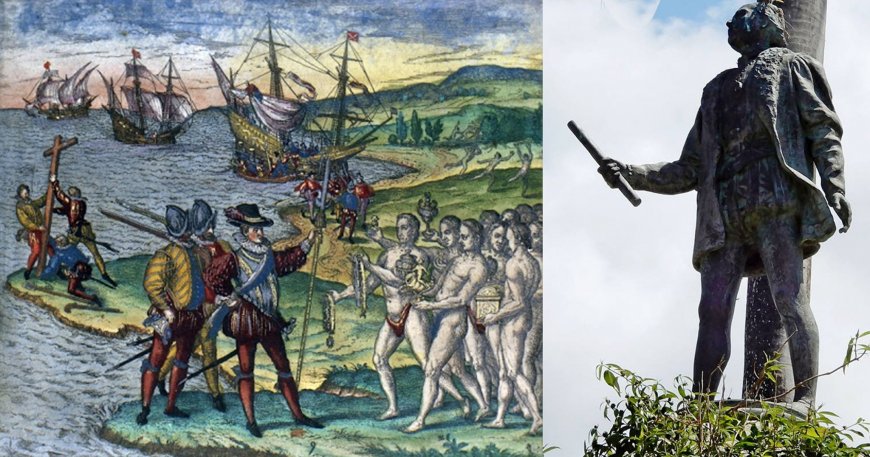European Explorer Christopher Columbus Landed In Jamaica On His Second Voyage To The West Indies in 1494

Jamaica, a vibrant and captivating island in the Caribbean, has a rich history that dates back centuries. From the arrival of Christopher Columbus in 1494 to its independence from British rule in 1962, Jamaica has endured conquest, colonization, and rebellion, shaping the island into what it is today.
European explorer Christopher Columbus first landed in Jamaica on May 5, 1494, during his second voyage to the West Indies. He had heard tales of the island's abundance of gold, but soon discovered that this was not the case. Despite initial hostility from the indigenous Arawak Indians, Columbus was determined to annex the island for the king and queen of Spain. The Spaniards who later arrived in Jamaica tortured and killed the Arawaks, ultimately leading to their demise due to overwork and European diseases.

Under Spanish rule, Jamaica remained poor and served mainly as a supply base for food, men, arms, and horses to aid in the conquest of the American mainland. It wasn't until 1509 that the first Spanish colonists arrived, settling in the St. Ann's Bay area. Spanish Town, the old capital of Jamaica, became the center of government and trade during this time.
However, the colony faced internal strife due to a lack of support from Spain and conflicts with church authorities. Frequent pirate attacks further weakened Spanish control over the island. In 1655, Admiral William Penn and General Robert Venables led a successful attack on Jamaica, forcing the Spaniards to surrender and flee to Cuba. The freed slaves from this event became known as the Maroons.
During the early English settlement in Jamaica, the buccaneers based in Port Royal gained attention. Port Royal quickly grew into one of the wealthiest and most notorious cities in the world, led by buccaneer captain Henry Morgan. However, a violent earthquake in 1692 destroyed Port Royal, leading to its abandonment.
The English settlers turned their focus to the sugar industry, which rapidly grew and relied heavily on enslaved Africans. The slave trade became a profitable venture, with Jamaica serving as a major hub. The enslaved Africans rebelled against their status, leading to several slave rebellions, such as the Easter Rebellion of 1760 and the Christmas Rebellion of 1831.
These rebellions, along with the efforts of humanitarians like the Quakers, contributed to the abolition of the slave trade and slavery in Jamaica. The Abolition Bill was passed in 1808, and emancipation and full freedom were granted in 1838.
The post-slavery era brought challenges for the poorer classes, exacerbated by the American Civil War, droughts, and economic depression. In 1865, the Morant Bay Rebellion led by Paul Bogle resulted in widespread violence and the execution of many rebels. The rebellion prompted changes in the island's governance and saw improvements in education, health, and social services.
In the 1930s, Jamaica faced another crisis with economic difficulties and rising unemployment. Out of these struggles emerged the formation of labor unions and the two major political parties, the Bustamante Industrial Trade Union (BITU) and the Jamaica Labour Party (JLP), as well as the National Workers' Union (NWU) and the People's National Party (PNP).
Jamaica gained independence from England on August 6, 1962. The Jamaican Constitution, which took effect on this day, guarantees the freedom, rights, and privileges of every Jamaican citizen. Since then, Jamaica has continued to evolve as a sovereign state, with improvements in infrastructure, communication, and governance.
Today, Jamaica stands as a vibrant and diverse nation, known for its beautiful landscapes, rich culture, and warm hospitality. Its history of exploration, colonization, and struggle for independence has shaped the island into a unique destination that captivates visitors from around the world.
For more information about Jamaica and its fascinating history, visit www.purejamaicamedia.com







